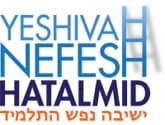The Midrash records all the different types of gold that Hashem created, their different qualities and uses:
אָמַר רַבִּי שִּמְעוֹן בֶּן לָקִּיש לאֹ הָיָה הָעוֹלָם רָאוּי לְהִּשְתַמֵּש בַזָהָב, וְלָמָה נִּבְרָא בִּשְבִּיל הַמִּ שכָן וּבִּשְ ביל בֵּית הַמִּקְדָש…
אָמַר רַבִּי שִּמְעוֹן בֶּן לָקִּיש לאֹ הָיָה הָעוֹלָם רָאוּי לְהִּשְתַמֵּש בַזָהָב, וְלָמָה נִּבְרָא בִּשְבִּיל הַמִּ שכָן וּבִּשְ ביל בֵּית הַמִּקְדָש…
שִּבְעָה זְהָבִּים הָיוּ בְבֵּית הַמִּקְדָש, זָהָב טוֹב, זָהָב טָהוֹר, זָהָב שָחוּט, זָהָב סָגוּר, זָהָב מְזֻקָק, זְהַב פרְוָיִּם, זָהָב מוּפָז.
זָהָב טוֹב, כְמַשְמָעוֹ.
וְטָהוֹר, שֶּהָיוּ מַכְנִּיסִּין אוֹתוֹ לְכוּר וְאֵּינוֹ חָסֵּר כְלוּם.
זָהָב שָחוּט, שֶּהָיָה נִּמְשַךְ כְחוּט וְהָיוּ סָכִּין בוֹ כְשַעֲוָה הַנְתוּנָה עַל גַבֵּי פִּנְקָס.
זָהָב סָגוּר, שֶּהָיָה סוֹגֵּר כָל הַזְהָבִּים שֶּהָיוּ שָם.
זָהָב מְזֻקָק, שֶּהָיוּ טוֹחִּין בוֹ אֶּת הַכְתָלִּים.
זָהָב מוּפָז שֶּהָיָה דוֹמֶּה לַגָפְרִּית הַזוֹ שֶּהִּיא מוּצָתָה בָאֵּש.
זְהַב פַרְוָיִּם, שֶּהָיָה דוֹמֶּה לְדַם הַפָרִּים. וְיֵּש אוֹמְרִּים שֶּהָ יה עוֹשֶּה פֵּרוֹת.
“Gold is so special that the world is really unfit to use it, but Hashem left it for us to use to build the Mishkan and Beis HaMikdash”. Every type of gold, no matter what grade or level of quality, is still considered gold and is too special for this world, its ultimate purpose being to be utilized for Avodas Hashem. Every child is born with this gold inside them. They have middos that emanate from their neshama, a “piece” of Hashem. It can be hidden and we have to dig for it, or it can be tarnished and must be polished, but it is special and put here for use to build a home for the shechina to rest, inside every child.
I used to think that middos were neither good nor bad, rather what you made of them. The Chovas HaTalmidim, however, says that all middos have their source ultimately from Hashem and his 13 Middos, and it is only through our behavior that we bury or tarnish them. Looking at ourselves and our middos, we feel they are “worthless” or bad, not realizing that there is gold underneath all the “shmootz” if we just clean it away. This is true of every child, especially in this generation where we are so fragile and have such low self-esteem, and constant bombardment of negative influences.
Gold is described by “carrots”. My understanding is that the higher number of carrots, the more impurities have been removed. There is a catch, however. The more pure the gold, the more soft it is, and liable to be damaged. The impurities in gold then, though lowering the quality and making it harder and “more stubborn” are stronger and less likely to be damaged. Perhaps this is what happened to Eliphaz (Hashems name and Paz, the purest of gold)? Eliphaz was the only one of Eisavs sons to learn torah with Yitzchak, and yet Amalek descended from him! Perhaps “Eli”, Hashem, was “Paz” for him, extremely high level but easily susceptible to damage and corruption.
As the Mishna says, there are different types and qualities of gold, but all of them are beyond this world and have a function in creating a place for the Shechina on earth. We often perceive the challenges and weaknesses of children as detracting from their “quality of gold”, but it could be just those things that make them who they are and will ultimately make them stronger for overcoming them, and fulfill the purpose they were put here for. Perhaps the problem starts with us, parents and mechanchim, for being disappointed that not every child is the “highest grade of gold” that we expected.
Lastly, the Midrash concludes:
וְאַף הָאֲרָזִּים הָיוּ רְאוּיִּן לְהִּגָנֵּז וְלאֹ נִּגְנָזוּ” …לאֹ הָיָה הָעוֹלָם רָאוּי לְהִּשְתַמֵּש בַאֲרָזִּים, אֶּלָא לאֹ נִּבְרְאוּ אֶּלָא בִּשְבִּיל הַמִּשְכָן וּבִּשְבִּיל בֵּית הַמִּקְדָש . אָמַר רַבִּי שְמוּאֵּל בַר נַחְמָן בְשֵּם רַבִּי יוֹנָתָן עֶּשְרִּים וְאַרְבָעָה מִּינֵּי אֲרָזִּים הֵּם …
Rav Wolbe describes how chinuch involves “planting” and “building”, in short, cultivating a childs natural inborn capabilities, and adding/constructing from the outside as they go through life. The Midrash says Cedar trees are likewise very special and the world unfit for it, and only placed here to build a sanctuary for Hashem. We have then, the middos and character traits from within and without the child, both special and precious.
When our children come into this world, they are so precious and special, we feel the world is unfit for them. As they go through life, we lose that appreciation of their preciousness, as do they. We need to remind them of what they carry inside them, by first reminding ourselves.
Shabbat Shalom,
Rabbi Ari Deutscher MSW
Menahel

Leave A Comment